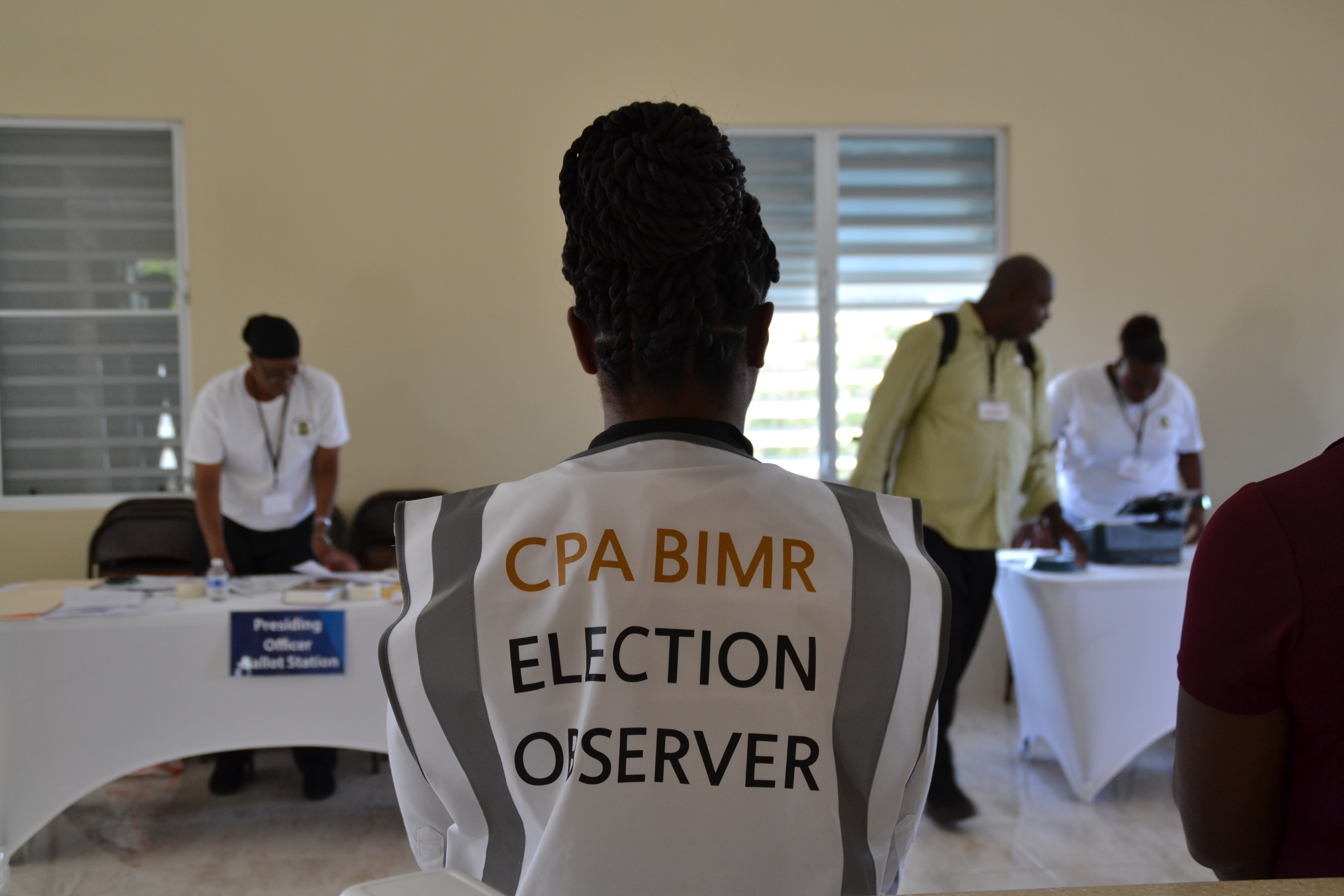Trust and confidence remain high after biggest changes to election laws in decates
Published 05 July 2024
Independent Commonwealth Observers Praise the Electoral Process Despite Delays with Postal Votes in 2024 UK General Election

Despite fundamental changes to the electoral process, including widespread boundary changes and photo ID for voters, confidence in the 2024 UK General election remained high, according to initial findings from a Commonwealth parliamentary Election Assessment Mission (EAM).
Particular praise was given to local government for running the election administration which the Mission said, "enjoys wide public confidence”. However, praise was not universal, the Mission “repeatedly heard concerns about delays in the delivery of postal voting” and encouraged further investigation due to the risk of “effective disenfranchisement”.
This election also saw the implementation of the electoral boundary review - the biggest changes to parliamentary constituencies in almost two decades. The Mission recognised the Boundary Commissions for conducting the process in an “open and consultative manner” and considered the lack of any legal challenge from political parties as sign of consensual “acceptance”.
The Mission found that “interlocutors largely welcomed” recent legal changes, however, warned that changes to Voter ID “could discourage or be a potential obstacle to the participation of some voters”.
Launching the Preliminary Statement on Friday 05 July in the UK Parliament, Head of the Mission and Member of the National Assembly of Kenya, Hon. Dr. Otiende Amollo said: “Fair and regular elections form the foundation of a democracy. How elections are planned and executed must not only be transparent, but be seen to be so, hence the place of election monitoring, observation and assessment. Ultimately, the legitimacy and credibility of a government, in the comity of nations, rests upon this.”
The Mission saw 29 Commonwealth parliamentarians impartially observe voting across 8 constituencies and 291 polling stations. It is the third Election Assessment Mission organised by the UK branch of the Commonwealth Parliamentary Association (CPA UK) for a UK general election. Its purpose was to observe the democratic process and assess how fairly and freely it was undertaken.
Internationally respected election analysts Vasil Vashchanka and Stefan Szwed analysed the data incoming from observers in real-time throughout polling day, The Mission has now published a preliminary statement which details initial findings.
Hon. Amollo concluded that: “Even in a relatively longstanding democracy like the UK, we see that there the electoral process still requires improvement, notably to increase participation and ensure that all voters can exercise their right to vote.
“This should serve as a reminder to all that democracy is not won with universal suffrage. It is won by caring for it and forever seeking to perfect it.”
In the run-up to polling day, the Head of Mission and election analysts met with key stakeholders, including specialist electoral organisations, the Boundary Commission, other observation teams, and the BBC, to better understand the national context and challenges. Meanwhile, constituency observers met with local stakeholders in their regions, such as electoral officials and candidates.
Over the next 8 weeks, the election analysts will be analysing the observers’ findings in more detail and issue a full report on the Mission in September.
The full Preliminary Statement can be found here.
Notes to editors:
What were the key findings from the Preliminary Statement:
Overall, the Preliminary Statement recognised:
- The election administration carried out by local government, and the efforts of Returning Officers, Presiding Officers and volunteers across the country.
- The confidence and impartiality of the review of constituency boundaries undertaken by the Boundary Commission.
- The number of candidates standing (4,379) - a new record.
- The lack of impact deepfakes and disinformation despite “expectations of high levels” from stakeholders.
However, it also highlighted:
- The time taken for postal votes to arrive at people’s homes and potential disenfranchisement of voters.
- Low registration for ‘younger voters’ which requires to be “systematically addressed”
- The disproportionate level of negative and derisive messages directed at women and minorities
Who took part:
Parliamentarians from Alderney, Anguilla, Australia, Grenada, Guernsey, Jersey, Kenya, Lesotho, Malawi, Malta, Mauritius, Saint Lucia, Saint Kitts & Nevis, Seychelles, Sri Lanka, and Turks & Caicos all participated, working with colleagues from the UK.
Which constituencies were observed:
The constituencies – which included Birmingham Ladywood, Brighton Pavilion, Bristol Central, Glasgow East, Ilford South, Liverpool Walton, North Northumberland and North West Cambridgeshire – provided a broad cross-section of polling across the country, covering rural, urban, metropolitan, densely and sparsely populated areas.
About CPA UK’s election work:
The Commonwealth Parliamentary Association (CPA) is divided into nine geographic regions: Africa, Asia, Australia, British Islands and Mediterranean (BIM), Canada, the Caribbean, the Americas and Atlantic (CAA), India, the Pacific, South-East Asia. Each region engages in its own programme of activities.
CPA UK is part of the British Islands and Mediterranean Region (BIMR) and also serves as its Secretariat.
As part of its commitment to strengthening democracy and good governance, and in its role as secretariat for CPA British Islands and Mediterranean Region (CPA BIMR), CPA UK regularly carries out and supports election observation work across the Commonwealth.
https://www.uk-cpa.org/cpa-bimr
https://www.uk-cpa.org/what-we-do/elections
More about CPA UK:
CPA UK’s core work is to build relationships with parliaments across the Commonwealth, including the UK’s Overseas Territories, the UK Devolved Legislatures and the Crown Dependencies, through a programme of parliamentary strengthening activities. CPA UK undertakes work at the request of other parliaments and our programmes include both individual country activities and large-scale activities that bring together UK and Commonwealth parliamentarians and parliamentary officials.